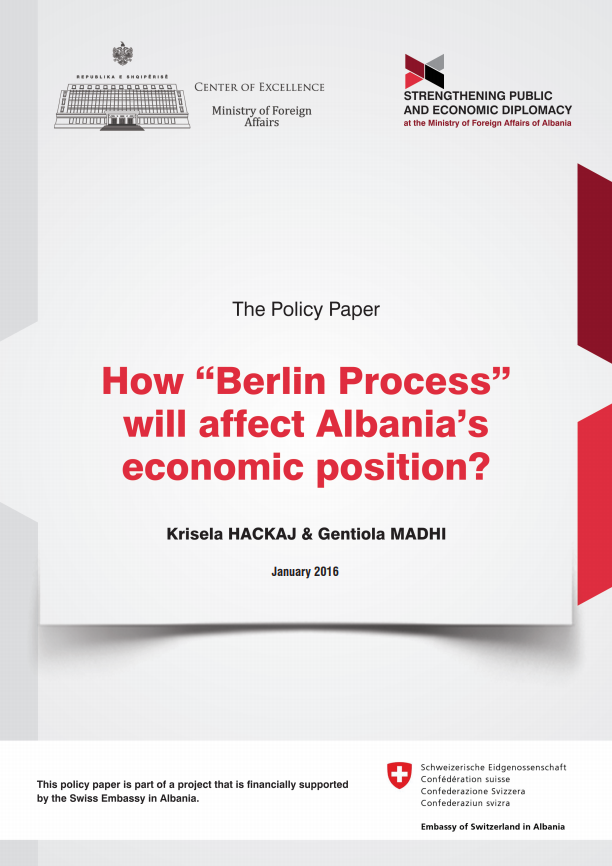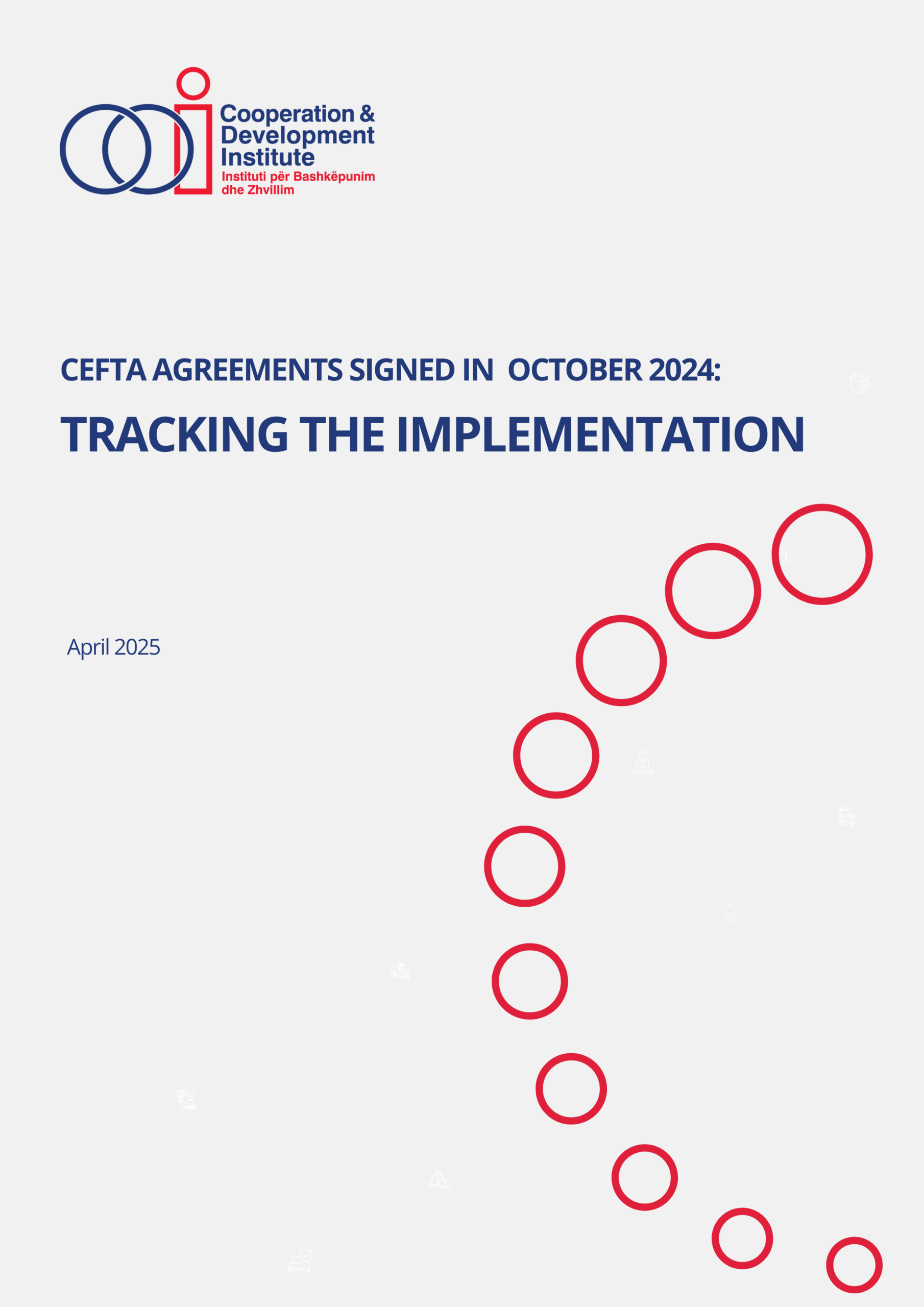
“EIRENE – European Intercultural Education towards a New Era of Understanding”
December 16, 2015
How will the Berlin Process affect Albania’s economic position
January 22, 2016This paper aims to outline the Berlin connectivity agenda and its relevance and impact on the economic growth of Albania. The methodology used by the authors will be based on the identification, and subsequent analysis and assessment of the political commitments and their respective legal base and consequences. We will sift through the official declarations and joint statements, public speeches, political statements, and press releases of the main EU and WB6 institutional actors and on their impact on the ground. The second component would focus on a formative evaluation process of the on-going connectivity projects in Albania.
The paper will be based on a qualitative analysis of the available information, completed with five semi-structured interviews with national and international stakeholders involved in the implementation of ‘Berlin Process’ related agenda in Albania such as Government, EU, IFIs and other involved actors.
Initially, the paper will start with the ‘Berlin Process’ institutions, approach and priorities as well as on the connectivity agenda with reference to the contribution of concrete projects to growth and prosperity in the country. Then, it will summarily assess Albania’s economic relations both at the regional and European level and identify the critical areas in need of reforms, the priority sectors and the obstacles to growth. Finally, specific recommendations will be drawn for each category of the involved stakeholders, in order to take out the most from the ‘Berlin Process’. Special attention will be paid to the argument of a joint regional platform for economic governance and of the regional value chain.




National Parliament and the Reform Agenda 2024-2027
Read more